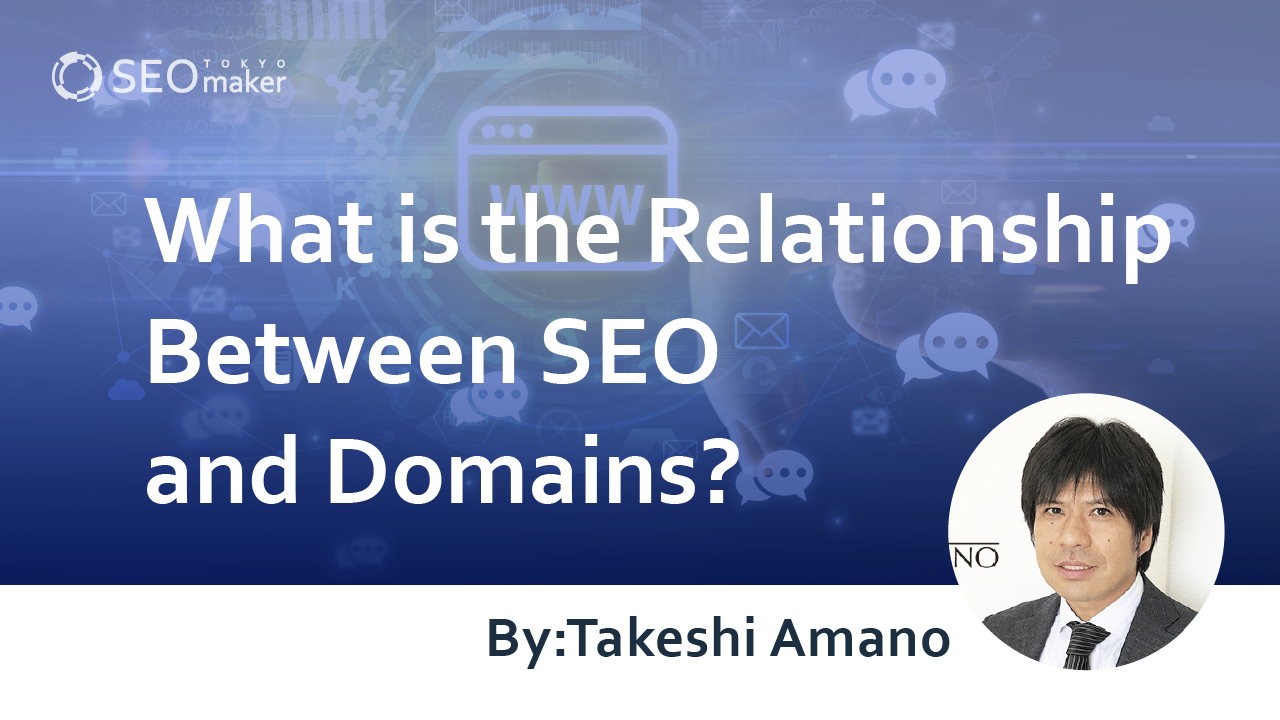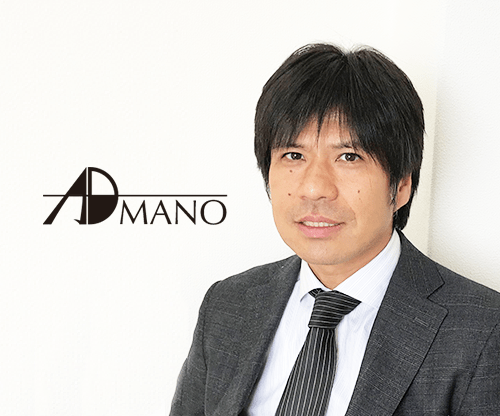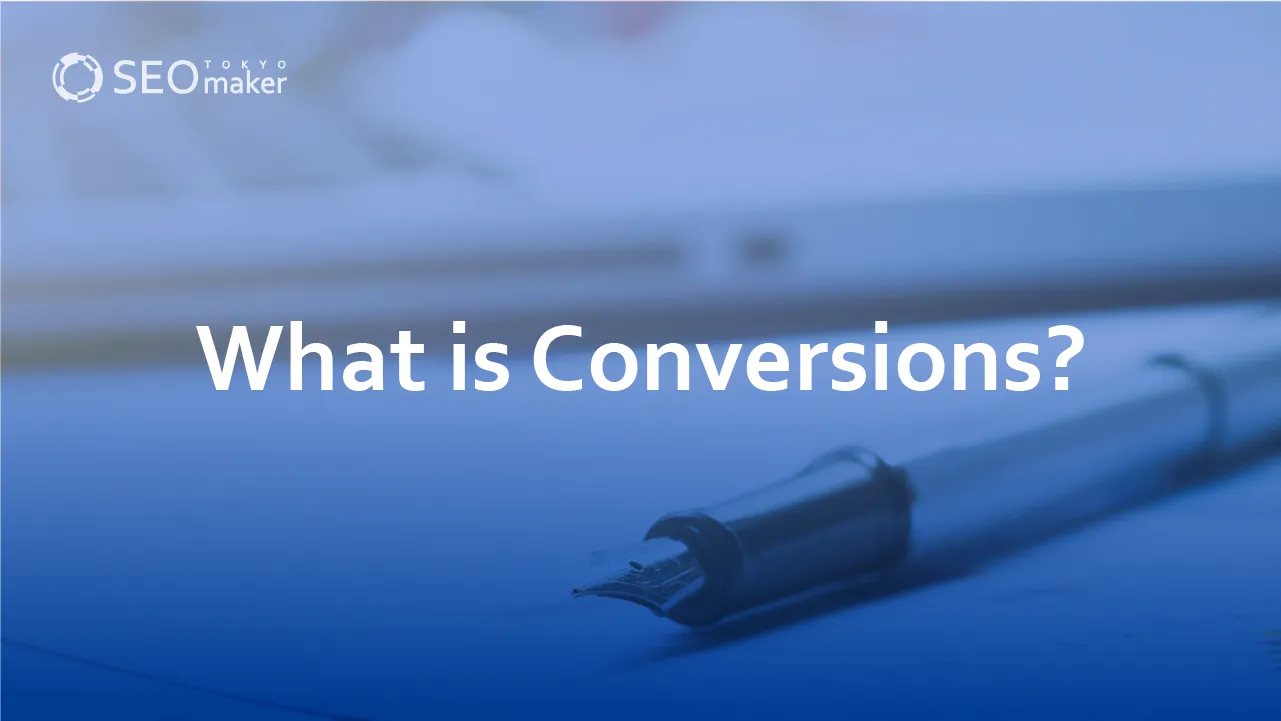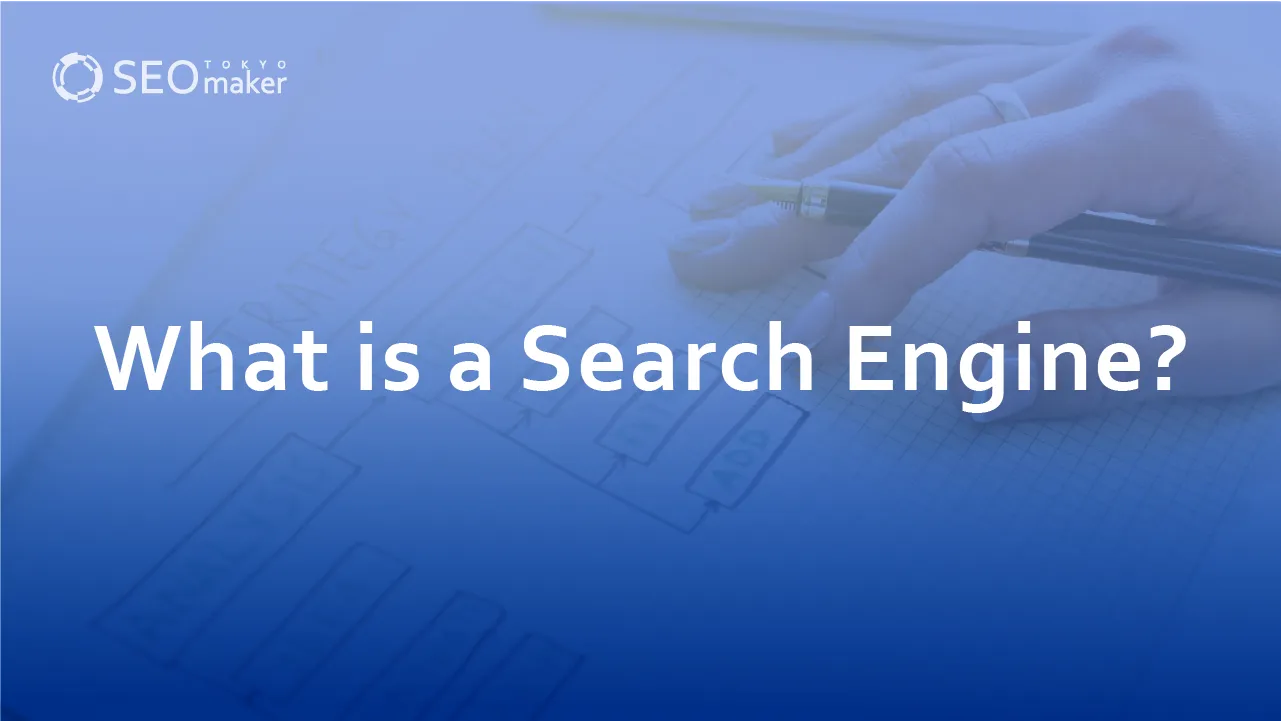What is the Relationship Between SEO and Domains? Domains and Search Rankings
contents

From the beginning of SEO, it has been said that domains significantly influence search rankings. Although Google has announced that domains and SEO are unrelated, there is a considerable amount of data suggesting a strong correlation between domains and SEO.
Reports suggest that established domains often have more strength than new ones, implying that the choice and setup of a domain can significantly impact subsequent site management.
We will delve into the semi-mythical SEO effects associated with domain power and domain age. Tokyo SEO Maker will explain about SEO and domains.
What is a domain?
A domain refers to the part of the URL that appears after “https://”. For example, the domain for Tokyo SEO Maker’s URL, which is “https://www.switchitmaker2.com/wordpress/”, is “switchitmaker2.com”. Each domain is unique to its site, functioning much like an address on the Internet.
In reality, every computer on the internet has a numerical IP address which acts as its address. Since numbers alone can be hard to understand, these IP addresses are linked with text to make them more comprehensible to humans.
Top-Level Domains and Second-Level Domains
(From left in the figure) Fourth-level domain Third-level domain Second-level domain Top-level domain
A URL consists of several domains. For example, the URL https://www.example.co.jp can be classified as follows.
|
https://www.example.co.jp |
URL |
|
en |
Top-level domain |
|
co |
Second-level domain |
|
example |
Third-level domain |
|
www |
Fourth-level domain |
Top-level domains like .jp are commonly used in Japan, but generic ones such as .com or .net are also prevalent. These top-level domains can impact SEO.
.jp explicitly indicates a Japanese domain and is not recommended for sites targeted at international audiences because it can be disadvantageous for SEO. You might not commonly see the American top-level domain .us in search results because there are very few sites using .us written in Japanese, and it’s less favorable for SEO.
Therefore, when considering SEO internationally, carefully choose a top-level domain that suits the local context.
Please note that top-level domains like .com or .net do not affect SEO.
Next, the second-level domain, such as co or ac, is used.
For instance, .co.jp indicates a Japanese corporation, and .ac.jp denotes a Japanese academic institution.
While top-level domains can affect SEO, second-level domains and beyond generally do not influence SEO.
The Relationship Between Domains and SEO
While it is often claimed that domains significantly influence SEO, Google has stated that there is no direct connection between domains and SEO.
In reality, stuffing keywords into domain names or creatively naming them does not produce SEO benefits.
However, the concept of “domain power” mentioned later does significantly impact SEO, making nurturing your domain an important strategy.
Effective Ways to Choose a Domain
As mentioned earlier, domains fundamentally do not have an SEO effect. Therefore, when acquiring a new one, it is recommended to choose something that is easy for users to understand and remember.
Name it after your company, site, or service
If it’s a corporate official site, using the company name or a well-known service name as the domain often makes it clearer to users.
Avoid confusion with existing domains
It is not recommended to choose a domain that could be confusing, even if similar domains exist by coincidence. For instance, having a domain like you-tube.co.jp might be mistaken for youtube.com and is considered inappropriate due to the potential for confusion.
Domain Impact Comparison
When discussing domains and SEO, the topics of new versus used domains and subdomains versus subdirectories often arise.
The conclusion is that there is no significant difference, but there are several points to consider.
New vs. Used Domains:
New domains start with no backlinks and a domain age of zero. In contrast, used domains may have existing backlinks and sufficient domain age, which are said to be advantageous for SEO.
However, used domains can be challenging to handle, offering less flexibility, and it’s rare to find exactly the name you want. They also inherit both the positive and negative values of the previous domain, and it’s reasonable to assume that the ratings reset when a new site is launched on them.
Still, used domains often rank faster, although experimenting with multiple domains sometimes shows no effect at all.
New domains, while not yet evaluated, offer more freedom and cannot have negative ratings, making them not a bad choice.
- Subdomains and Subdirectories:
Both subdomains and subdirectories have their advantages and disadvantages, and neither is inherently stronger or weaker in SEO. Therefore, it’s recommended to choose based on the intended use.
Subdomains are used when handling different services under the same main domain. For example, Yahoo uses the primary domain yahoo.co.jp and branches it into various services as follows.
|
Yahoo Shopping |
https://shopping.yahoo.co.jp/ |
|
Yahoo Auctions |
https://auctions.yahoo.co.jp/ |
|
Yahoo Travel |
https://travel.yahoo.co.jp/ |
- This segmentation within the same domain clarifies the site based on user needs.
On the other hand, subdirectories are commonly used to offer different services under the same site. For instance, Sony’s official site manages product information and its store through subdirectories as follows.
|
TVs |
https://www.sony.jp/bravia/ |
|
DSLR Cameras |
https://www.sony.jp/ichigan/ |
|
Smartphones |
https://www.sony.jp/xperia-sp/ |
This method allows for clear delineation of different categories within the same service.
Frequently Asked Questions About Domains
Here are some frequently asked questions and answers about domains.
What is Domain Age?
A. It refers to the age of the domain.
Domain age refers to the number of years since the domain was registered. While older domains are generally said to be stronger in SEO, this is not simply because they are old but because a long-operated site is likely to have acquired backlinks and advanced site evaluations, making it more likely to appear in search results. Domain age can also be checked via who is information.
What is Domain Power?
A. It refers to the reputation of the domain.
There is no clear definition of “domain power” used almost magically by SEO specialists. A mature domain is relatively easy to rank higher, and articles from well-regarded sites (domains) tend to rank higher, even if they are new pages or relatively inferior in content. Tools like the Power Rank Checker investigate and quantify domain power based on proprietary criteria.
Are Japanese Domains Advantageous for SEO?
A: Not really.
There was indeed a time when having keywords in your domain was considered advantageous. In fact, it is not entirely a waste as there is a slight effect. Some people might think that using a Japanese domain would be advantageous since searches are in Japanese, but Japanese domains are converted into a unique script called Punycode, which raises questions about the clarity of the domain. While Japanese domains are not inherently bad, their proactive use is not recommended.
Should you include keywords in your domain name?
A: It depends on usability.
Including keywords in the domain name as an SEO strategy is not the correct approach. Google’s evaluation criteria may change, and it is not fundamentally essential. Domain names should be chosen based on how easy they are to understand, remember, spread, and how they contribute to branding.
How strong are free domains?
A: They are no different from custom domains.
Free domains are those you can obtain when using services like Hatena Blog or Ameba Blog. They are convenient as they allow you to start easily. However, while they might be suitable for personal blogs, they are not recommended for corporate sites. Blogging services might withdraw or change policies due to corporate strategies, and they do not offer much flexibility. Using them for a blog within a corporate site might be acceptable, but for corporate sites, it is strongly recommended to acquire and operate under a custom domain.










![What is a Description? Explaining the Meaning, Writing Style, and Changing Word Count – [2023 Edition]](https://www.switchitmaker2.com/en/wp-content/uploads/2024/09/what-is-description.webp)










